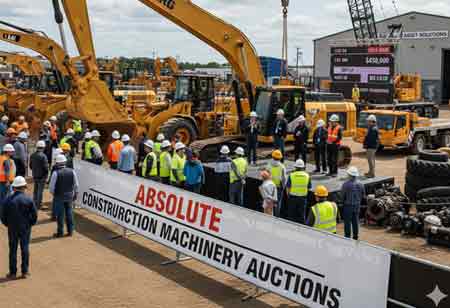Thank you for Subscribing to Construction Business Review Weekly Brief
Specials
- Apartment and Condominium Contractors Canada
- Decking Canada
- Architectural Glass Europe
- MEP APAC
- Construction Saudi Arabia
- German Apartment and Condominium Contractors
- Construction Law APAC
- Outdoor Construction
- Foundation Construction Canada
- MEP Canada
- Kitchen and Bath
- Cold Storage Construction APAC
- Precast Concrete Europe
- Construction Staffing Europe
- Pre-Construction Services
- Flooring System APAC
- Scaffolding Canada
- Swimming Pool Construction Canada
- Construction Management Canada
- Cold Storage Construction Canada
- Flooring Systems Europe
- Residential Construction
- Concrete Canada
- Construction Cladding Europe
- Construction Cladding APAC
- Concretes, Aggregates and Construction Materials APAC
- Concretes, Aggregates and Construction Materials Europe
- Commercial Contractors Europe
- Commercial Contractors APAC
- Dummy
- Construction Insulation, Coating and Waterproofing
- Construction Management APAC
- Landscaping Canada
- Construction Coating Europe
- Construction Tech Startups Europe
- Insulation Services Europe
- Mechanical Contractor Canada
- Mould Remediation and Testing Europe
- Swimming Pool Construction APAC
- Building Sealing Solutions Europe
- Construction Engineering Services
- Mechanical Electrical and Plumbing
- Roofing Systems Europe
- Architectural Glass APAC
- Startups APAC
- Construction Forensic and Owners Representative
- Flooring System
- Waterproofing APAC
- Wall Systems
- Safety and Compliance Europe
- Construction Bidding and Auctions
- Modular and Prefab Construction
- Architectural Glass
- Construction MENA
- Construction Demolition and Recycling Europe
- Modular Construction Europe
- Construction Interiors
- Steel Building APAC
- HVAC
- Doors and windows
- Construction Latam
- Building Information Modeling APAC
- Sustainable Construction APAC
- Building Restoration and Maintenance
- Commercial Contractors
- Specialty Construction
- Construction Engineering Canada
- Construction Engineering MENA
- Modular Construction Canada
- Modular Construction APAC
- Roofing and Siding Systems
- Workforce Management and Staffing
- Roofing Systems APAC
- Construction Consulting
- Steel Building Europe
- Construction Demolition and Recycling APAC
- Safety and Compliance APAC
- Concretes, Aggregates and Construction Materials
- Construction Cladding
What Are The Key Characteristics Of Mechanical Contracting?
The significance of mechanical contracting in construction or renovation projects cannot be overstated, highlighting the necessity of hiring a contractor with substantial experience and expertise in this field.

By
Construction Business Review | Friday, August 30, 2024
Stay ahead of the industry with exclusive feature stories on the top companies, expert insights and the latest news delivered straight to your inbox. Subscribe today.
The significance of mechanical contracting in construction or renovation projects cannot be overstated, highlighting the necessity of hiring a contractor with substantial experience and expertise in this field. This article delves into what is mechanical contracting and its primary features.
Fremont, CA: Mechanical contracting refers to the engagement of a contractor to execute a project that involves mechanical systems. This process generally encompasses installing, repairing, or replacing various mechanical elements, including plumbing, HVAC (heating, ventilation, and air conditioning) systems, and other related mechanical systems.
The scope of mechanical contracting can vary significantly, from installing a new HVAC system in a residential setting to fixing a large industrial boiler or maintaining a complex piping network and valves. Typically, contractors possess a background in mechanical engineering and are pros in the relevant plumbing, electrical, and HVAC codes that must be adhered to.
They also have a comprehensive understanding of system components and installation, repair, and maintenance procedures. Contractors frequently collaborate with architects, engineers, and other professionals to ensure the systems are effectively designed, installed, and maintained.
Key Features of Mechanical Contracting
Mechanical contracting plays a crucial role in any construction or renovation event, making it essential to engage a contractor with both experience and expertise. The primary characteristics of mechanical contracting include the following:





